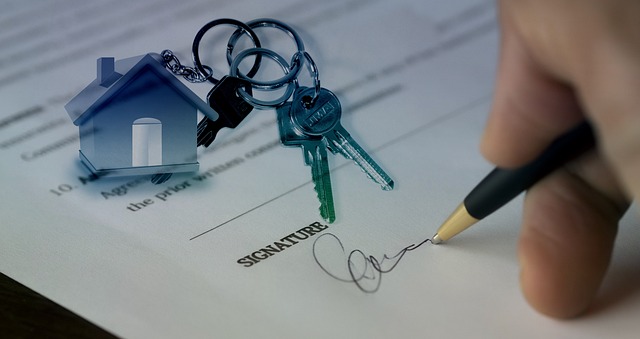Buying a property in the Philippines can be complicated for foreigners. However, with the right guidance, it’s possible to buy and own real estate in this beautiful Southeast Asian country. This guide covers everything you need to know as a foreigner looking to buy property in the Philippines.
I’ll walk you through the buying process step-by-step, including the non-citizen property purchase procedure, taxes and fees, property rights, and more. Read on to learn the ins and outs of investing in Philippine real estate and buying property as a foreigner in Philippines.

Why Consider Buying Property in the Philippines?
The Philippines is increasingly becoming a top destination for foreign property buyers for good reason. The country offers tropical weather, gorgeous beaches, a lower cost of living, excellent rental yields, and friendly people.
Property in the Philippines can also be very affordable compared to homes in Western countries. Plus, by owning real estate here, you may establish a home base for when you want to escape cold winters abroad.
For these reasons and more, the Philippines stands out as a smart choice if you’re considering buying property overseas as a foreigner.
5 Things to Know When Buying Property as a Foreigner in the Philippines
When it comes to buying property in the Philippines, there are a few things that non-citizens should know. First and foremost, foreigners are not allowed to own land in the Philippines, but they are able to invest in property through long-term leases. Additionally, foreigners are subject to certain restrictions and limitations when it comes to investing in property. However, there are ways foreigners can also buy property in the Philippines, such as through a corporation or by marrying a Filipino citizen. Overall, it is important for non-citizens to familiarize themselves with the different options and regulations when considering purchasing a property in the Philippines.
Key points
- While foreigners are allowed to lease property long-term, they are prohibited from outright owning land. This precludes foreigners to buy land directly.
- There are benefits however for foreigners to buy property through alternative means. One option is forming a corporation registered locally that can then purchase the property on their behalf.
- A non-citizen can also invest through marital connections if they wed a Filipino national, as this provides an avenue for them to gain ownership privileges similar to citizens.
- Gaining familiarity with the specific regulations regarding a property to buy is crucial, as foreigners face limitations that locals do not. Understanding these rules is key to a successful investment.
- Overall, taking the time to explore the options will help non-citizens identify suitable methods to buy property within Philippine statutes. Planning investments carefully can lead to compliant purchases.

What Property Can Foreigners Buy in the Philippines?
Many foreigners want to know if they can buy land in the Philippines. The country allows foreigners to purchase condos and certain types of landed property. However, the process differs depending on the property type.
Here’s a quick overview of what foreigners can and cannot own when buying property as a foreigner in Philippines:
- Condos – Foreigners can buy condo in the Philippines with no restrictions. You have full ownership rights for condo units.
- Landed Houses and Townhouses – Foreigners can acquire townhouses and houses in the Philippines in specific scenarios only. For example, your Filipino spouse must own the land itself.
- Raw Land – Foreigners cannot directly own raw, undeveloped land. You’ll need to lease long-term or buy a property through a corporation.
We’ll explore qualified ownership structures in more detail later. But first, let’s look at the step-by-step non-citizen property purchase procedure for foreigners purchasing property. When going through the process to buy property in the Philippines, it’s important for foreigners to follow the proper steps. This ensures you comply with all regulations and successfully invest in real estate as a non-citizen.

Steps for Foreigners Buying Property in the Philippines
Foreigners looking to buy property in the country will need to follow a specific non-citizen property purchase procedure. First, it’s important to research and understand the market value of the property you choose. Once you have a good idea of what you can afford, you’ll need to find a property that meets your needs and preferences. Then, you’ll need to look into buying property abroad and ensure you are following all the legal requirements and regulations. A guide to buying property in the Philippines can be very useful in this regard, as it will provide you with all the necessary information and steps to buy the property. Finally, once you have found the right property, you can proceed to buy the property following the legal process of buying property.
Follow this procedure when buying property as a foreigner in the Philippines:
1. Find the Right Property
Your first task is to find the ideal condo, house, townhouse or piece of land to purchase in the Philippines. When following the steps for foreigners buying property in the Philippines, it’s essential to work with a reputable real estate agent to discover properties matching your specifications. Make sure to find a legit real estate agent, broker or salesperson reside in the Philippines.
Ideally, look for newer properties in secure buildings or gated subdivisions. New builds tend to sell faster and yield higher rents too.
2. Secure a Bank Loan Pre-Approval Letter
If financing your purchase, get pre-approved for a home loan from a major Philippine bank. This letter will strengthen your offer when negotiating.
3. Make an Offer to Purchase
Present your offer to the property seller through your agent. Clearly state your price, ideal closing date, and terms in this Purchase Agreement.
4. Sign a Deed of Sale After Negotiating Terms
Here is where both parties officially agree to the sale. This legal document transfers ownership of the property from seller to the foreign buyer.
5. Make the Required Payments
Now you can transfer funds to pay for your new property, taxes, and closing fees. Wire the money or pay via manager’s check.
6. Transfer Utility Bills to Your Name
Contact utility providers like power, water, internet, etc. to transfer billing details to yourself. And that covers the general steps for foreigners buying property! But several other key steps relate to ownership rights, payments, transfers and more. Let’s look at those next.
Buying Process for Foreigners in Philippines: Qualified Ownership Structures
The way that foreigners can buy a home and own property in the Philippines depends on whether you purchase condos, houses, townhouses or land and property. When going through the non-citizen property purchase procedure, here are the qualified ownership structures available:
- Condominiums
Foreigners can buy property in Philippines such as condo in their own name and no restrictions apply. You can use or lease out the unit freely.
- Houses
For houses, the land itself must be owned by your Filipino spouse. Foreigners are generally not allowed to own land in the Philippines, but there are some exceptions to this rule. One of the exceptions is when a foreigner is married to a Filipino citizen. In this case, the foreigner can own a house and lot, but not the land on which it is built.
- Townhouses and Townhome Lots
The process is the same for townhouses and townhome lots. The Filipino spouse owns the land rights. And the foreigner investor owns the physical townhouse built on the land.
- Raw Land
Foreigners cannot directly buy raw, undeveloped land in the Philippines. Instead, you can lease long-term through Investor’s Lease Act of the Philippines (RA 7652) for up to 50 years. The lease contract shall be for a period of 25 years and renewable for another 25 years.
Another option is to purchase land by incorporating a Filipino company that buys the land. You can own up to 40% of shares in that corporation as a foreigner.

Costs of Buying Property as a Foreigner in Philippines
Taxes and closing fees are where buying real estate here differs greatly from Western countries. Be sure you prepare for the various one-time payments required when purchasing property as a foreigner in the Philippines.
- Capital Gains Tax
A 6% capital gains tax applies whenever you sell a property. This tax applies to any profits you make on the sale based on current market value. Capital gains tax is paid upon closing the sale.
- Documentary Stamp Tax
Expect to pay around 1.5% of the purchase price as documentary stamp tax. This proves the sale meets legal standards and transfers ownership.
- Transfer Tax for Foreign Buyers
According to Section 135 of the Local Government Code of 1991, Transfer Tax is at most 50% of 1% or 0.50% (It is up to 75% of 1% or 0.75% in the case of cities and municipalities within Metro Manila) of the total consideration involved in the acquisition of the property or of the fair market value in case the monetary consideration involved in the transfer is not substantial, whichever is higher.
- Miscellaneous Fees
You’ll also owe closing fees of around 1% to 2% of the total property price. These miscellaneous costs cover legal fees, registration, certificates and documentation.
- Ongoing Costs
Once you own the property, you must also pay annual property tax commonly called “Amilyar”. This tax ranges from 0.5% to 2% based on the property’s assessed value.
As you can see, buying costs and taxes add substantially to your purchase price. Account for these fees in your Philippines property investment budget.
Property Rights and Visa Requirements
Property rights and visa requirements often go hand in hand, especially when it comes to property ownership in other countries. Many countries impose restrictions on land ownership for individuals who are not citizens or residents, and obtaining a visa may be necessary in order to become the owner of the property. Additionally, visa requirements may also impact the ability to sell your property in a foreign country. For example, some countries may require the owner of the property to provide a copy of the new buyer’s visa in order to complete the sale. Therefore, it is crucial to be aware of visa requirements when considering purchasing or selling property abroad.
Foreign nationals have excellent property rights when buying Philippines real estate. Some key factors to keep in mind include:
- Most foreigners cannot own land directly and instead use renewable 25+25 year leases
- Property rights pass equally to designated heirs in the event of the owner’s death
- If married to a Filipino, you can own land through your spouse
- Owning property does not grant residency or visas; these require separate application
Regarding visas, most foreign property buyers travel in the Philippines visa-free for up to 30 days. For longer stays, apply for a Special Resident Retiree’s Visa (SRRV) or other long-term visa. Having the proper visa is an important consideration when going through the non-citizen property purchase procedure.

Buying Checklist for Your Philippines Property Purchase
Use this checklist to keep organized when buying your new home in the Philippines:
[ ] Shortlist 3-5 properties with your agent
[ ] Get pre-approved financing from a Philippines bank
[ ] Submit your offer and negotiate seller terms
[ ] Inspect the property, order appraisal & title check
[ ] Sign deed of sale once the seller accepts your terms
[ ] Transfer required purchase price & tax payments
[ ] Register your ownership title at proper agency
[ ] Transfer all utility bills like power, water, internet into your name
Following this buying process checklist will help your Philippines property purchase go smoothly.
Bottom Line
Following the proper steps for foreigners buying property helps ensure a smooth transition to becoming a property owner in the Philippines. Sticking to the legal procedures protects your investment and rights as a foreign landholder. With diligent planning and research and using an expert guide, navigating the process is highly achievable.
I hope this guide gave you clarity that foreigners can own land and buying property is the best investments in the Philippines as a foreigner. While the steps for foreigners buying property takes some adjustment, it’s well worth owning property in this tropical paradise.
Owning your own home here gives you an affordable sanctuary to escape to year-round. Just be sure to work with a trusted real estate agent and attorney. They will ensure you sidestep any pitfalls and take the right steps purchasing your new condo, house or land.
So if you’re searching for an overseas vacation home or rental investment, the Philippines offers tremendous options. Follow the guidance above, and your buying experience will be a breeze. Best of luck finding your perfect property in paradise!





Join The Discussion